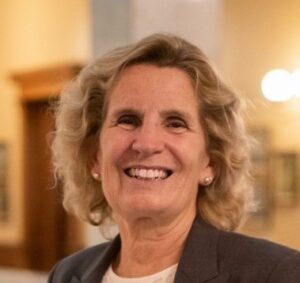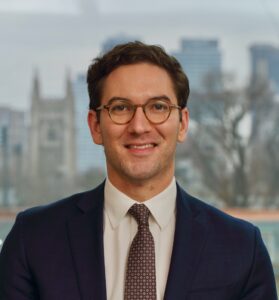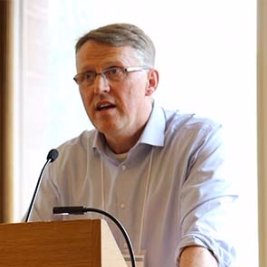TRN412H1
TRN412H1: Seminar in Ethics, Society, and Law
For the 2023-2024 academic year, there are five sections of TRN412H1.
TRN412H1-F Seminar in Ethics, Society, and Law – Law and Time
Course Description
Time structures our lives. The passage of time has legal consequences. Different legal traditions, indigenous, common law and civil law have different conceptions of the role of time. The course will use the passage of time as an entry point in looking at a range of legal concepts: from the concept of childhood to adulthood, discrimination on the basis of age, time and decolonization, age and disability, age and race, as well as the way in which law uses time to punish and principles of sentencing. The objective is to critically examine how law deals with the passage of time and the assumptions about life cycles embedded in legal choices.
2023-2024 Instructor
|
Nathalie Des Rosiers Nathalie Des Rosiers is the Principal of Massey College, Professor at the University of Toronto, Faculty of Law, Senior Fellow of Trinity College. From 2016 -2019, she was the MPP representing the riding of Ottawa-Vanier and Minister of Natural Resources and Forestry (2018). Prior to politics, she was Dean of Law, Common Law, University of Ottawa (2013 to 2016), General Counsel of the Canadian Civil Liberties Association (2009 to 2013), Vice-President, Governance , University of Ottawa (2008 to 2009), Dean of Law, Civil Law (2004 to 2008) and President of the Law Commission of Canada (2000 to 2004). With Peter Oliver and Patrick Macklem, she co-edited the Oxford Handbook of Canadian Constitutional Law (2017). She has written extensively on civil liberties, human rights and law reform, focusing her work on the right to protest and freedom of expression. Her early work on limitations of action for sexual violence changed Canadian law in the 1990s. She has also written with Louise Langevin and Marie-Pier Nadeau, L’indemnisation des victimes de violence sexuelle et conjugale (Prix Walter Owen, 2014). She has received the Order of Canada, the Order of Ontario, honorary doctorates from Université UCL (Belgium) and the Law Society of Ontario, le Prix Christine Tourigny (Barreau du Québec), the Law Society Medal from the Law Society of Ontario and is a Fellow of the Royal Society of Canada. |
 |
TRN412H1-F: Seminar in Ethics, Society, and Law – Freedom of Expression, Harmful Speech, and the Law
Course Description
In this course we examine the legal status of harmful speech. Specifically we look at cases where freedom of expression leads to tangible harms to other people. A central question for the course is why words that wound should enjoy more protection than actions that cause damage? If someone strikes you with their fist, this would obviously be criminal. Why is it different when someone strikes you with their speech? Scholars have given many answers to this question and we will study the different ways that countries have tried to balance the interest in freedom of expression with the the interest in reducing harm, especially to already vulnerable parties. The goal of the course is to allow students to bring theoretical foundations to current issues related to the limits of freedom of expression. Students will produce research papers over the course, and will also be given the opportunity to develop their presentation skills.
2023-2024 Instructor
|
Michael Kessler Michael Kessler is an Assistant Professor in the Ethics, Society & Law Program at Trinity College. He is the Raymond Pryke Chair and Director of the Margaret MacMillan Trinity One Program. He was an undergraduate at the University of Toronto where he studied philosophy before moving to Harvard University for his doctoral studies. His research interests are in philosophy of law, bioethics, and criminal justice. In his spare time he spends a lot of time on bikes and with dogs. |
 |
TRN412H1-S: Seminar in Ethics, Society, and Law – Social Justice Policy in Ontario
Course Description
Governments of all stripes in Canada will argue that the policies they propose and implement are designed to advance the best interests of their citizens. Most often, there are no objective criteria built into policies that could allow analysis of the success of these claims. In this section of TRN412H, we will discuss policies designed to foster social justice in the Ontario context over the past 20 years and the degree to which we can agree that they were successful. We will examine changes to the publicly funded education system between 1995 and present day; progress of reconciliation with Indigenous people in the context of the recommendations of the Truth and Reconciliation Commission; poverty reduction initiatives and particularly the Basic Income Pilot; and finally, issues of equity and inequality that have been thrown into sharp relief by the COVID pandemic and the subsequent economic volatility.
The instructor will draw on her experience as an elected official in Ontario from 2000-2022 to augment and foster discussion. Students will be expected to complete assigned readings but additionally, to bring relevant policy discussion items from current media.
2023-2024 Instructor
|
Kathleen Wynne Kathleen Wynne was Ontario’s 25th Premier. She was first elected to the Ontario legislature in 2003 as the MPP for Don Valley West, and she became the leader of the Ontario Liberal Party in January 2013. Kathleen has dedicated her professional life to building a better province for the people of Ontario. She and her government were guided by the values and principles that knit this province together: fairness, diversity, collaboration and creativity. Kathleen has served as Ontario’s Minister of Municipal Affairs and Housing, Minister of Aboriginal Affairs, Minister of Transportation, Minister of Education and Minister of Agriculture and Food. In her role as Minister of Aboriginal Affairs, Kathleen worked in partnership with First Nations communities to address issues such as mining development, First Nations land claims, and improving quality of life for Indigenous people living off-reserve through affordable housing and recreation programs. As Minister of Education, Kathleen led the government’s efforts to reduce class sizes, implement full-day kindergarten and provide more opportunities for high school students to reach their full potential. Kathleen has served as a Public School Trustee in Toronto. She has led citizens’ groups in a number of grassroots community projects, and has played a major role as an organizer and facilitator. This experience has contributed to her results-based approach to life, government and community. Kathleen has three adult children, Chris, Jessie and Maggie, and six grandchildren, Olivia, Claire, Hugh, Violet, Arthur, and George. Before moving to Alliston, Ontario, Kathleen and her partner Jane lived in North Toronto for more than 30 years. |
 |
TRN412H1-S: Seminar in Ethics, Society, and Law – Constitutional Democracy: The Theory & Design of Modern Governance
Course Description
Constitutional democracy is the predominant form of modern governance and political life. Almost every country in the world has some form of constitution and—by explicit declaration, substantive commitment, or pretence—each aspires to some form of popular rule. But the union of constitutionalism and democracy is beset by tensions—between popular will and minority rights, the rule of the people and the rule of law, the claims of the present and the commitments of the past. This course explores the theory and design of constitutional democracy. It proceeds by examining the philosophical foundations and component institutions of constitutional self-government, culminating in a collaborative constitutional convention addressing the challenges of structuring political life together.
2023-2024 Instructor
|
Connor Ewing Connor Ewing is assistant professor of Political Science and Fellow of Trinity College at the University of Toronto. Located in the fields of American Politics and Public Law, his research interests span American political thought and development, constitutional law and theory, federalism, rights jurisprudence, human dignity, and constitutional design. Previously he was a Kinder Institute Assistant Professor of Constitutional Democracy and Assistant Professor of Political Science at the University of Missouri and, before that, a Postdoctoral Research Associate in the Program on Constitutionalism & Democracy at the University of Virginia. He received his PhD in Government from the University of Texas at Austin, AM in Social Sciences from the University of Chicago, and BA in Philosophy and Political Science from the University of Wisconsin—Madison. |
 |
TRN412H1-S: Seminar in Ethics, Society, and Law – Our Failed War in Afghanistan
Course Description

The West has continually interfered in Afghanistan, and since 1978 there has been conflict in the country, much of it directly involving the West (especially the former USSR and USA). A month after the 9/11 terrorist attacks, in October 2001, the US and NATO (including Canada), and Afghan warlords (once allied with the US against the USSR) initiated a war to depose the Taliban regime (which both developed in opposition to the warlords, and harboured al Qaeda, which perpetrated 9/11). By December 2001, Afghanistan was on a new US-backed path to build a better future. However, soon afterwards, the Taliban returned to fight a war that lasted until August 2021, when it retook Afghanistan. We look at the 2001-2021 war. Topics will include tactics used by the US-led coalition such as night raids, drone warfare, and COIN, as well as the rights of women, democracy promotion, and spin.
Assessment: early 2pp research proposal on selected topic (~15%); <10min presentation on topic (~20%); end-of-term essay on topic (~15pp, ~45%); class participation (~20%). Also open to senior IR students.
2023-2024 Instructor
|
John Duncan John Duncan is director of the University of Toronto’s major program in Ethics, Society and Law (ES&L, we say “E, S AND L”) hosted by Trinity College. ES&L enrolls 75 new students from more than 500 applicants annually, and features small seminar courses, innovative programing, a focus on sustainability, and more traditional courses. John is also the academic director of the Ideas for the World program at Victoria College in the U of T. John’s interests include outreach and engagement co-learning (please see, e.g., “Humanities for Humanity”), critical issues in contemporary society and politics (please see, e.g., “Three NATO gambles in Ukraine”), and the history of philosophy and the humanities (please see, e.g., Rousseau and Desire). He is involved in peace research and directs the Humanities for Humanity program at Trinity. For more information, please see his web presence on Academia.edu. |
 |